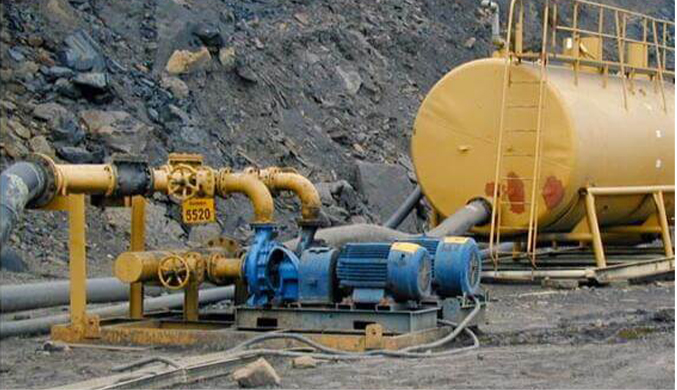English
- Afrikaans
- Albanian
- Amharic
- Arabic
- Armenian
- Azerbaijani
- Basque
- Belarusian
- Bengali
- Bosnian
- Bulgarian
- Catalan
- Cebuano
- Corsican
- Croatian
- Czech
- Danish
- Dutch
- English
- Esperanto
- Estonian
- Finnish
- French
- Frisian
- Galician
- Georgian
- German
- Greek
- Gujarati
- Haitian Creole
- hausa
- hawaiian
- Hebrew
- Hindi
- Miao
- Hungarian
- Icelandic
- igbo
- Indonesian
- irish
- Italian
- Japanese
- Javanese
- Kannada
- kazakh
- Khmer
- Rwandese
- Korean
- Kurdish
- Kyrgyz
- Lao
- Latin
- Latvian
- Lithuanian
- Luxembourgish
- Macedonian
- Malgashi
- Malay
- Malayalam
- Maltese
- Maori
- Marathi
- Mongolian
- Myanmar
- Nepali
- Norwegian
- Norwegian
- Occitan
- Pashto
- Persian
- Polish
- Portuguese
- Punjabi
- Romanian
- Russian
- Samoan
- Scottish Gaelic
- Serbian
- Sesotho
- Shona
- Sindhi
- Sinhala
- Slovak
- Slovenian
- Somali
- Spanish
- Sundanese
- Swahili
- Swedish
- Tagalog
- Tajik
- Tamil
- Tatar
- Telugu
- Thai
- Turkish
- Turkmen
- Ukrainian
- Urdu
- Uighur
- Uzbek
- Vietnamese
- Welsh
- Bantu
- Yiddish
- Yoruba
- Zulu
Telephone: +86 13120555503
Email: frank@cypump.com
Oct . 31, 2024 10:39 Back to list
industrial slurry pumps
Industrial Slurry Pumps Essential Components for Efficient Operations
In various industries, efficient material handling is crucial to ensuring optimal operations. One of the key components that facilitate this process is the slurry pump. Industrial slurry pumps are specifically designed to transport a mixture of liquids and solids, often in aggressive environments. These pumps play a critical role in industries such as mining, construction, wastewater treatment, and chemical processing. Understanding their functionality, types, and applications can provide valuable insight into their significance in modern industrial processes.
Understanding Slurry Pumps
Slurry pumps are specialized centrifugal pumps designed to move slurries, which are mixtures of solid particles suspended in a liquid. The slurry in question can vary widely, from abrasive mine tailings to corrosive chemical mixtures, thus requiring pumps built to withstand specific challenges. The design of slurry pumps includes features that accommodate high solids content, abrasive materials, and varying viscosities.
Construction Features
One of the primary considerations in the design of industrial slurry pumps is the materials used for construction. These pumps typically have heavy-duty casings made from materials that resist wear and corrosion, such as high chrome alloys or rubber linings. This durability is essential, as the pumps often handle abrasive materials that can cause significant wear over time. Additionally, slurry pumps usually incorporate larger impellers and volutes compared to standard pumps, allowing them to effectively manage the increased density and viscosity of slurries.
Types of Slurry Pumps
industrial slurry pumps

There are several types of slurry pumps, each suited for specific applications
1. Horizontal Slurry Pumps The most common type, designed for high flow and low head applications. They are versatile and widely used across different industries. 2. Vertical Slurry Pumps Ideal for applications where space is restricted, these pumps are submersible and can handle high depths often found in mining and dredging operations.
3. Positive Displacement Pumps These pumps operate by trapping a fixed amount of slurry and forcing it through the discharge, making them suitable for thick, viscous slurries.
Applications in Industry
Slurry pumps are critical in several industrial applications. In the mining sector, they are used to transport ore slurries from processing plants to settling ponds, or to manage tailings disposal. In the construction industry, these pumps manage waste slurry from concrete mixtures, ensuring efficient cleanup and material recovery. Furthermore, wastewater treatment plants utilize slurry pumps to handle sludge and biosolids, playing a key role in the environmental management of industrial processes.
Conclusion
In conclusion, industrial slurry pumps are indispensable for a wide range of industries that deal with the transportation of solid-liquid mixtures. Their robust construction, varied types, and capability to handle challenging materials make them essential for maintaining efficient operations. As industries continue to evolve and innovate, the demand for reliable and efficient slurry pumps will undoubtedly increase, highlighting their importance in the overall industrial landscape. Investing in high-quality slurry pump technology not only enhances operational efficiency but also ensures longevity and sustainability in industrial practices.
-
Horizontal Split Case Pump with GPT-4 Turbo | High Efficiency
NewsAug.01,2025
-
ISG Series Pipeline Pump - Chi Yuan Pumps | High Efficiency, Durable Design
NewsAug.01,2025
-
Advanced Flue Gas Desulfurization Pump with GPT-4 Turbo | Durable & Efficient
NewsJul.31,2025
-
ISG Series Vertical Pipeline Pump - Chi Yuan Pumps | Advanced Hydraulic Design&Durable Construction
NewsJul.31,2025
-
ISG Series Vertical Pipeline Pump - Chi Yuan Pumps | Energy Efficient & Low Noise
NewsJul.31,2025
-
pipeline pump - Chi Yuan Pumps Co., LTD.|High Efficiency&Low Noise
NewsJul.31,2025










